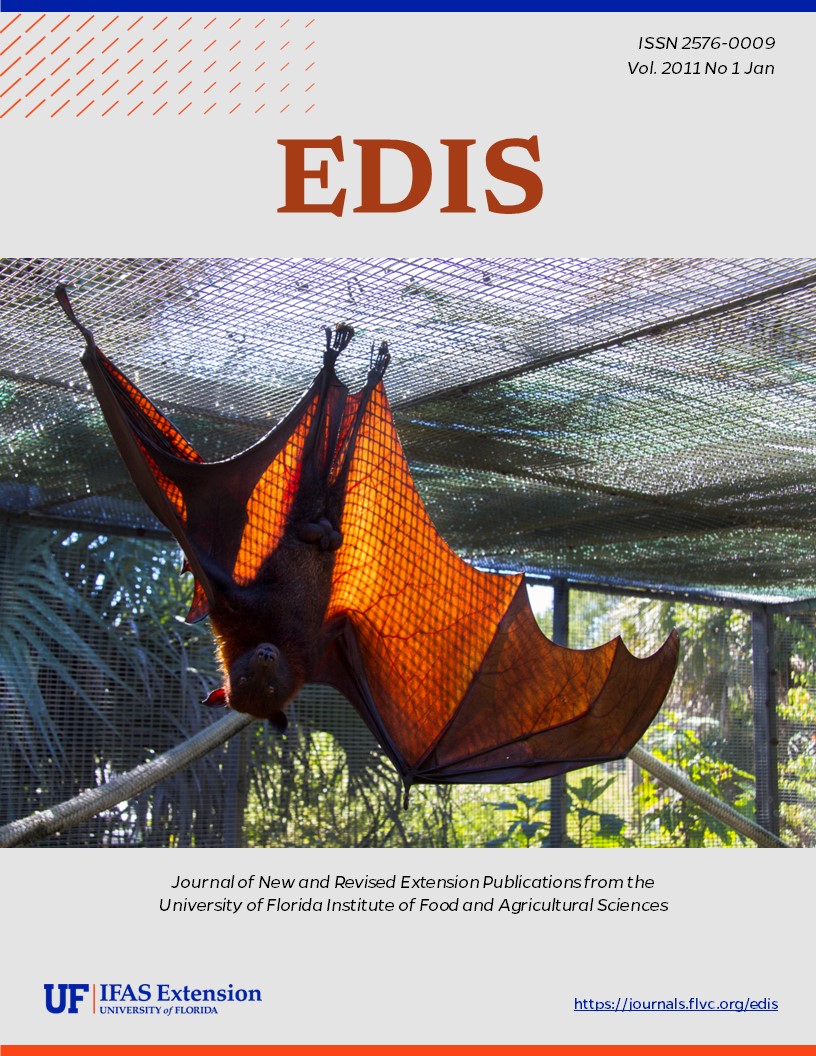Abstract
Nocturnal habits, affinity for eerie places, and silent, darting flight have made bats the subjects of a great deal of folklore and superstition through the years. Given their ability to function in the dark when and where humans cannot, it is no wonder that bats have long been associated with the supernatural. Bats remain poorly understood even today. This revised 5-page fact sheet describes the species of bats that occur in Florida and provides simple tips for their identification. It was written by Holly K. Ober, Martin B. Main, and Ginger M. Allen and published by the UF Department of Wildlife Ecology and Conservation, November 2010.
References
Brown, L. N. 1997. Mammals of Florida. Miami, FL: Windward Publishing Inc.
FWC. 1999. Checklist of Florida's Mammals. Tallahassee, FL: Florida Fish and Wildlife Conservation Commission.
Kern, W. H. 2005. Bats in Buildings. ENY268. Gainesville: University of Florida Institute of Food and Agricultural Sciences. http://ufdc.ufl.edu/l/IR00003396/00001
Marks, C. S., and G. E. Marks. 2006. Bats of Florida. Gainesville, FL: University Press of Florida.
Mazotti, F., and H. K. Ober. 2008. Conservation of Bats in Florida. MG342. Gainesville: University of Florida Institute of Food and Agricultural Sciences. https://edis.ifas.ufl.edu/uw291 https://doi.org/10.32473/edis-uw291-2008
Ober, H. K. 2008. Insect Pest Management Services Provided by Bats. WEC247. Gainesville: University of Florida Institute of Food and Agricultural Sciences. https://edis.ifas.ufl.edu/uw289 https://doi.org/10.32473/edis-uw289-2008
Ober, H. K. 2008. Effective Bat Houses for Florida. WEC246. Gainesville: University of Florida Institute of Food and Agricultural Sciences. https://edis.ifas.ufl.edu/uw290 https://doi.org/10.32473/edis-uw290-2008
Whitaker, J.O. Jr., 1998. Mammals of the Eastern United States. Ithaca, NY: Cornell University Press.

